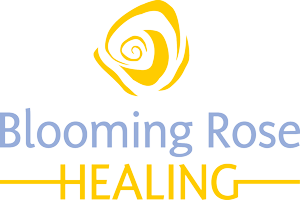Give Them Your Love But Not Your Thoughts
Photo credit: Johannes Plenio
It’s back-to-school season and as my daughter starts her senior year I’m in a state of amazement. Am I really almost at the next stage of parenting? I watch as she drives herself to school in her own car and takes the first of many steps into adulthood and I’m filled with pride.
And fear.
I think things like, did I do a good job with her? Did I give her the right tools? And I worry about myself: what will I do when she’s gone? Will I stay in this house? What will my life be like?
I know I have to cut the cord between us but I remind myself that it can be done gradually, as a slow releasing. Just as I breathe in and out and stay grounded in my breath, I can also stay present and be here now, enjoying every moment we spend together.
The words of this beautiful poem by Kahil Gibran comfort me:
Your children are not your children.
They are the sons and daughters of Life’s longing for itself.
They come through you but not from you,
And though they are with you yet they belong not to you.
You may give them your love but not your thoughts,
For they have their own thoughts.
It can be hard for us parents to let our children have their own thoughts. We want to TELL, advise, or regain our power. We become reactive or resistant when our children don’t listen to us or act too independently.
Sometimes, listening to my daughter and her friends, I notice that their egos can be so big. I try to not be offended by it, to let them be. Instead of resisting my daughter, I let her explore her ideas, even when I don’t agree.
When I do end up in a stand-off with her, I inwardly ground, hold the space, listen deeply, and continue to breathe mindfully. My energy embodies her but I’m not willfully controlling her.
Often, she’ll start crying, which is just what she needed.
As kids transition they need, just as we do, to emote, to move through their fears, to clear their vibrations. And we, as parents, need to allow them to make mistakes.
My mother is a Jungian therapist and her thesis was about parenting and the importance of owning the shadow. She wrote about how, if we as parents don’t do our inner work, we will try to pass our dreams and destiny to our children. She wrote about how each of her eight children played a role in who she became as a therapist and how she projected various parts of herself onto each of her children. She stressed the duty parents have to work out their own issues so they don’t pass them on to their kids.
I have to remember that my daughter sees the world very differently than I do and meet her from a place of allowing and embracing those differences. I came into the world as a deaf person and my purpose has been to teach others how to reconnect on a vibrational level.
I needed space to discover that gift in myself. I hope to give my daughter that same space.
You may strive to be like them, but seek not to make them like you, writes Gibran.
This line reminds me to keep a sense of curiosity about who my daughter is as a person. After all, she arrived into a more expanded consciousness simply by entering this Earth-plane later than I did.
As the poem says: Their souls dwell in the house of tomorrow, which you cannot visit, not even in your dreams.
It’s not easy to accept that I can’t go with her on every step of her journey. It comes down to trusting that, yes, I raised her well. Yes, I gave her the right tools. If I can stay grounded in this knowing, I feel a sense of harmony both within myself and with her.
So my intention for the next few months will be to practice forgiveness for all that I’ve done as a parent.
I did the best I could.
I can continue to give my daughter my love and you can do the same with your children, even when you’re about to be an empty-nester, like me.
You can be, as Gibran says, The bows from which your children as living arrows are sent forth.
And when you feel lonely, just breathe.

